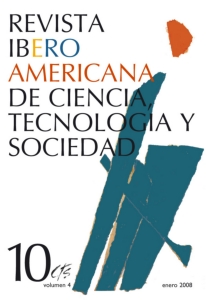Folk Epistemology
Subjective Factors of Credibility
DOI:
https://doi.org/10.52712/issn.1850-0013-920Keywords:
popular epistemology, social communication of science, scientific culture, knowledge transference and exchangeAbstract
This work addresses the subjective conditions for credibility and the attribution of trust in social communication of science and, in general, the processes of knowledge transfer. It is an incipient research line that can offer some interesting results. Adapting the previous notion of civic epistemology, I will argue that the users of knowledge are attitudinally active agents in the appropriation of knowledge, and their attitudes have an origin a limited repertory of epistemic styles. Thus, the development of popular epistemology may be useful for a better understanding of the conditions of scientific culture, and, in general, for the policies of knowledge promotion and management and governance of science.
Downloads
References
FECYT (Fundación Española para la Ciencia y la Tecnología (2005): Percepción social de la ciencia y la tecnología en España - 2004, FECYT, Madrid.
JASANOFF, S. (2005): Designs on Nature: Science and Democracy in Europe and the United States, Princeton University Press, Princeton.
LÓPEZ CEREZO, J.A. (1989): "El caso contra la psicología popular", Cognitiva 2/3, 227-242, 281-297.
LÓPEZ CEREZO, J.A. y M. CÁMARA HURTADO (2005): "Apropiación social de la cien-cia", en: FECYT (2005): Percepción social de la ciencia y la tecnología en España -2004, FECYT, Madrid.
MARCHI, B. y J. RAVETZ (1999): "Risk management and governance: a post-normal science approach", Futures, Nº 31, 743-757.
MUÑOZ, J. y J. VELARDE (eds.) (2000): Compendio de epistemología, Trotta, Madrid.
WYNNE, B. (1995): "Public Understanding of Science", en S. Jasanoff y otros (eds.): Handbook of Science and Technology Studies, Sage, Londres.
Downloads
Published
How to Cite
Issue
Section
License
Copyright (c) 2025 CC Attribution 4.0

This work is licensed under a Creative Commons Attribution 4.0 International License.
All CTS's issues and academic articles are under a CC-BY license.
Since 2007, CTS has provided open and free access to all its contents, including the complete archive of its quarterly edition and the different products presented in its electronic platform. This decision is based on the belief that offering free access to published materials helps to build a greater and better exchange of knowledge.
In turn, for the quarterly edition, CTS allows institutional and thematic repositories, as well as personal web pages, to self-archive articles in their post-print or editorial version, immediately after the publication of the final version of each issue and under the condition that a link to the original source will be incorporated into the self-archive.











